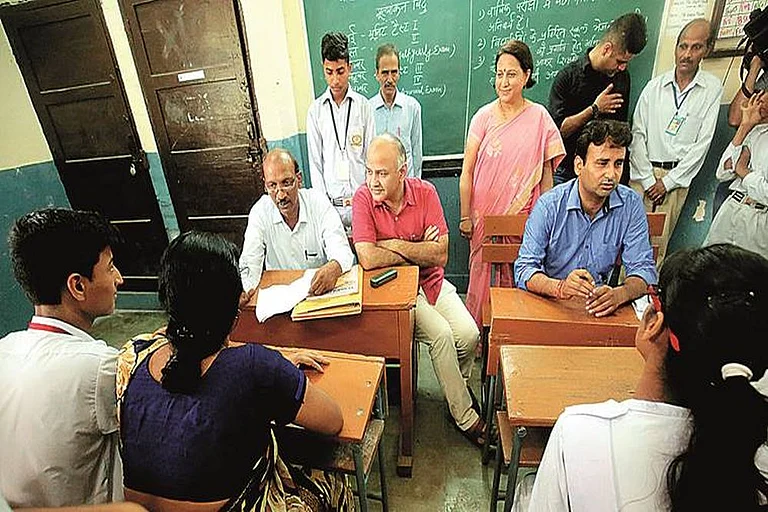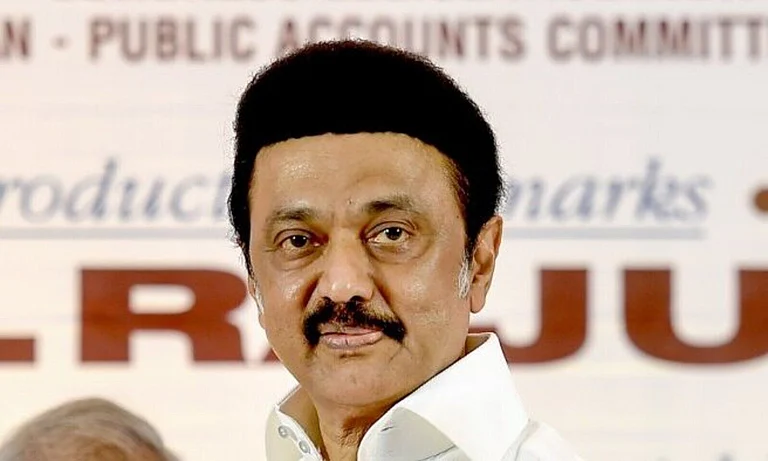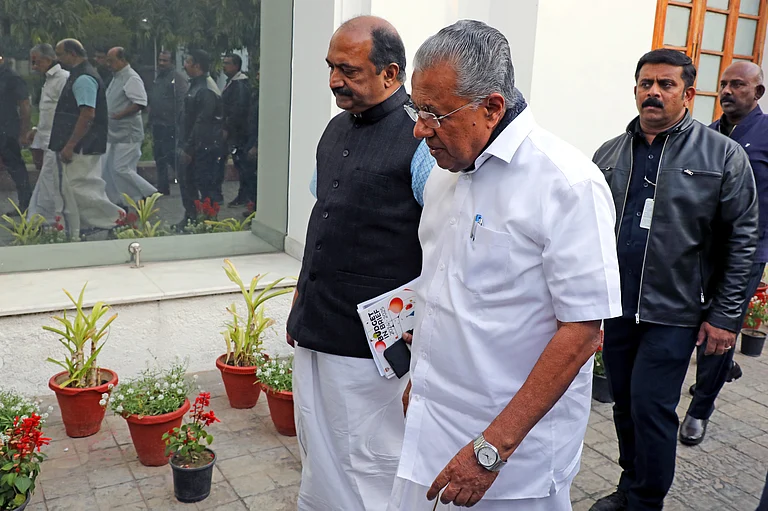Tamil Nadu Finance Minister Thangam Thennarasu, in his recent maiden State Budget speech, referenced the insightful words of Nobel Laureate and distinguished economist Amartya Sen regarding Tamil Nadu’s remarkable growth trajectory:
“Tamil Nadu is one of the states which had achieved rapid progress within a relatively short period despite it starting from appalling levels of poverty, deprivation and inequality. Tamil Nadu initiated bold social programmes and has some of the best public services among all Indian States and many of them are accessible to all on a non-discriminatory basis. Tamil Nadu has one of the highest per capita income and lowest poverty rates among all Indian States. This is an important example of the complementarity between economic growth and public support.”
In India, only a few states have achieved progress on both the economic and social fronts. Tamil Nadu is one such progressive state that has set an ambitious target to become a $1 trillion economy by 2030. Despite accounting for only 6% of the country’s population, Tamil Nadu stands out as a beacon of economic dynamism and growth.
Some key highlights of Tamil Nadu’s economic prowess include being India’s second-largest economy, with a GSDP of INR 23.64 lakh Crores in FY23. The state’s growth is underpinned by a commitment to social inclusivity and regional distribution, reflected in its per capita income, which is 1.75 times that of India’s average, and an average urbanization rate of 48%. Tamil Nadu also leads the nation in several aspects, ranking first in the Export Preparedness Index and second in Ease of Doing Business, a significant jump from its 18th rank in 2018. It is the top state in manufacturing and exporting electronics and automobiles.
Additionally, Tamil Nadu ranks third in installed power capacity in India. The state boasts of a robust healthcare infrastructure, with four doctors per 1000 patients compared to India’s average of 1.34.
Tamil Nadu is also home to the highest number of high-quality educational institutions (146) in the National Institute Ranking Framework (NIRF), showcasing its commitment to excellence in education.

With numerous achievements under its belt, some are still skeptical about Tamil Nadu’s ability to achieve its $1 trillion economy goal. However, Tamil Nadu Chief Minister’s Economic Advisory Council member and former RBI governor Raghuram Rajan believes that the goal, while ambitious, is attainable, especially given the current circumstances. He expressed this sentiment at the recent Global Investors Meet in Chennai. “Tamil Nadu’s $1 trillion goal is ambitious. But if there is a good time to reach that goal it is now,” Rajan said. At the same Global Investors Meet, Arvind Subramanian, Chief Economic Advisor of India pointed out the steep growth the state has to take to realise this dream. “Tamil Nadu has to grow at the rate of 18 percent, which is higher than that of the China’s growth rate of 10 to 12 percent. But if any State can achieve this target, it is Tamil Nadu” he said.
Tamil Nadu has strategically identified agriculture, manufacturing, and services as its key growth sectors, representing the primary, secondary, and tertiary segments of the economy, respectively. In the agricultural sector, the state is focused on enhancing crop value-addition and expanding its export footprint. This goal is to be achieved through the establishment of comprehensive clusters that integrate post-harvest and processing infrastructure, along with active engagement of multiple stakeholders.
The quadrupling of the size of the economy of Tamil Nadu is eminently feasible because of the state’s remarkably low economic disparity compared to other major states in India
In the manufacturing sector, Tamil Nadu asserts its dominance particularly in textiles, showcasing its robust industrial prowess. Also, the state harbours ambitious aspirations for its Electric Vehicle (EV) industry, with government estimates projecting a staggering growth trajectory to reach $40 billion by 2030.
Meanwhile, the Services sector stands as a pillar of Tamil Nadu’s economic landscape, contributing a substantial 53 percent to its overall economic growth. This sector leans heavily on Information Technology (IT) and Global Capability Centers (GCCs) as primary drivers of its success story, underlining their pivotal role in propelling Tamil Nadu’s economic prosperity forward.
To bolster the progress of these three crucial sectors, Tamil Nadu has the essential infrastructure, a skilled workforce, a culture of innovation, and effective governance. The state government is planning various initiatives to propel Tamil Nadu towards its $1 trillion economy goal.
On the investment front, Tamil Nadu aims to attract a substantial $3.8-4.3 trillion in investments, both from public and private sources. The state seeks to position itself as the premier destination for Foreign Direct Investment (FDI) while also facilitating local investments to spur growth and expansion.
In terms of human capital, Tamil Nadu annually produces approximately 145,000 engineering graduates and 115,000 Industrial Training Institute (ITI) graduates. These numbers underscore the state’s commitment to nurturing a skilled workforce. According to the ‘All India Survey on Higher Education’ by the Ministry of Education, Tamil Nadu boasts a commendable Gross Enrolment Ratio (GER) of 51.3 percent, significantly higher than the national average of 26.3 percent. Looking ahead, the state plans to further enhance its workforce by adding 60 lakh women to the workforce through upskilling and reskilling programs. Additionally, Tamil Nadu aims to skill 1 crore individuals engaged in the economy, transitioning them into high-value job roles.
To propel economic development, Tamil Nadu is committed to robust policy-making and ensuring transparent and efficient governance. The state aims to strengthen its institutional and regulatory frameworks while establishing specialized agencies to enhance its standing in the ‘Ease of Doing Business’ index.

The Government of Tamil Nadu is also actively working to diversify its schemes and investments, extending beyond metropolitan cities like Chennai and Coimbatore. This inclusive approach aims to catalyze growth in all districts and regions of the state, fostering their emergence as vibrant growth centers.
At this juncture, it is crucial to question whether the envisioned benefits of achieving a $1 trillion economy will be inclusive and reach all segments of society. In her book ‘Surge: Tamil Nadu’s Growth Story,’ author and business journalist Sushila Ravindranath addresses this issue. She observes, “At present, we cannot expect one Ambani, Adani, or Mittal from Tamil Nadu. But the advantage of Tamil Nadu is that many units with turnover ranging from Rs. 200 to Rs. 500 crores are operating in all the districts of the State.” This distinct characteristic sets Tamil Nadu’s industrial growth apart from that of other states, highlighting a more distributed and potentially inclusive economic landscape.
Dr. J. Jeyaranjan, Vice Chairman of the State Planning Commission (SPC), emphasizes that Tamil Nadu stands out as the sole state with the potential to significantly enhance per capita income by achieving a $1 trillion economy. He elucidates, “At present, the Gross State Domestic Product (GSDP) value of Tamil Nadu is about 23.64 lakhs crore. Tamil Nadu aims to quadruple this figure, which will also quadruple the per capita income. This feat is uniquely achievable in Tamil Nadu due to the state’s remarkably low economic disparity compared to other major states in India.”
Jeyaranjan further elaborates, citing statistics to support his statement: “In Gujarat, for example, poverty levels are nearly 26 percent, whereas in Tamil Nadu, it is just 2 percent. Consequently, the benefits of economic growth in Tamil Nadu are more evenly distributed, ensuring that a larger segment of the population reaps the rewards of progress compared to other states.”
He also points out the advantage of having a high ratio in GER. “The GER in Tamil Nadu is nearly 50 percent. Similarly, the State is producing a greater number of engineers. They will expect the job they deserve. Employment opportunities should also be created for them. In India, Bangalore and Pune have some of the largest global skill centers. We need to bring them here. Similarly, Non-polluting industries that provide a large number of employment opportunities must also be brought in. That is how factories producing footwear out of non-leather goods were brought in. There should be a target to bring employment to all divisions of the society. That goal is a $1 trillion economy”.
MORE FROM THIS ISSUE
Tamil Nadu’s ambitious goal of achieving a $1 trillion economy by 2030 is not only a testament to its economic vision but also reflects its commitment to inclusive growth. With a focus on sectors like agriculture, manufacturing, and services, the state is leveraging its existing strengths while actively seeking to diversify and innovate. By ensuring that the benefits of economic growth reach all segments of society, Tamil Nadu is not just aiming for economic prosperity but also for a more equitable and sustainable future for its people.



























